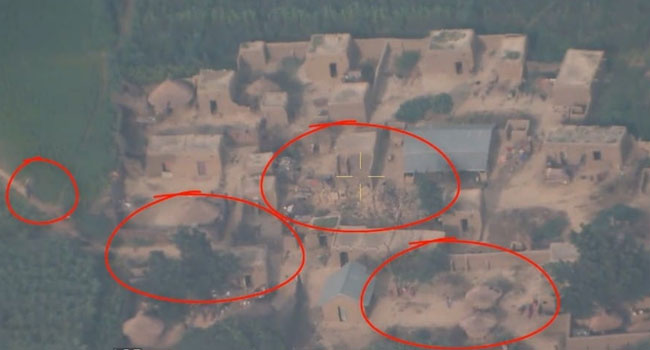Several Terrorists Killed As Air Force Strike Forest In Kaduna

AfriqueCAN
The Nigerian Air Force says several terrorists have been killed following air strikes on the Malum Forest in Kaduna State.
NAF spokesman, Air Vice Marshal Edward Gabkwet, disclosed this in a statement on Sunday.
He said the operation was carried out on Saturday, August 24 by the Air Component of Operation Whirl Punch.
Gabkwet also stated that similar operations were carried out in neighbouring states – Zamfara and Niger respectively that eliminated the insurgents from their enclaves.
To the Air Force spokesman, most of the terrorists responsible for recent attacks on civilians, abductions and cattle rustling within Shiroro Local Government Area (LGA) of Niger State were domiciled in Kaduna State.
“Additional intelligence further revealed the sightings of these terrorists as they relocated from Alawa Forest in Niger State after their nefarious acts to their stronghold in Malum Forest in Igabi LGA of Kaduna State,” he said.
“Consequently, the Air Component planned and executed an Air Interdiction mission on 21 Aug 24 on the terrorists’ stronghold at Malum Forest. Battle damage assessment and feedback from local sources revealed several of the terrorists were eliminated as a result of the strike.
“Similar strikes were also conducted on terrorists’ hideouts at Bayan Ruwa in Maradun LGA of Zamfara State. The terrorists were tracked to zinced-roofed structures in a vegetated area with few footpaths and a river line Northwest of the location. The targets were then acquired and engaged in successive passes.”
He explained that air operations also took place in the Niger Delta Region with patrols conducted by the air component of Operation Delta Safe over Ohaji/Egbema in Imo State and Degema and Cawthorne Channel in Rivers State.
The military operations led to the destruction of several Illegal Refining Sites and overhead tanks.
“In all, over 25 illegal sites were destroyed. In Greenville, Rivers State, a leaking pipeline was observed with the leakage spreading across over 150 metres radius with its attendant negative consequences on the vegetation, aquatic habitats and farmlands,” Gabkwet said.





